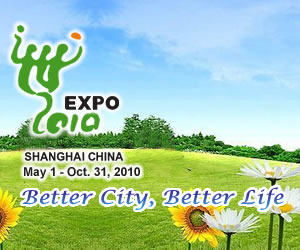In praise of expat-friendly city
I'll be the first to concede that Beijing isn't the most livable city in China. It's a big, crowded metropolis, with ever-worsening traffic, unacceptably high levels of air pollution, and prolonged freezing cold winters and stifling hot summers. Yet despite all that, it's hands-down China's best city for expats.

To start with, Beijing provides foreign residents with excellent windows into both China's ancient past and rapid and amazing ongoing modernization. Save for Xi'an, no other Chinese city matches the capital's collection of really old and physically intact historic landmarks. And China's economic dynamism can be readily grasped during a quick stroll through the forest of high-rises.
By contrast, Shanghai is all about modern China. With the exception of the Yu Gardens, the city lacks distinctly Chinese historical landmarks. I love walking along the Bund, with its great art-deco style buildings, but these structures are distinctly Western, not Chinese.
To be sure, Beijing's historic siheyuan and hutong neighborhoods are now rapidly being torn down. However, there are still more than a few of them left for the capital's foreigner residents to explore and see first-hand an older Chinese way of life.
Moreover, Beijing is hardly unique in failing to better preserve its past. In Shanghai, scores of old villas have been destroyed to make room for elevated expressways, while many old areas of Chengdu are being razed to make way for new buildings. And in Hangzhou, the old city, described by Marco Polo as the medieval world's most splendid metropolis, was demolished during the 19th Century Taiping Rebellion.
Shanghai, Guangzhou and Shenzhen are China's most highly touted business centers, but Beijing is also home to plenty of major Western and Chinese companies. The capital will never rival Shanghai as a financial center and "Finance Street" is likely to remain a white elephant. But the capital's high-tech industry is bigger than Shanghai's and rivals that of Suzhou. Indeed, thanks to its concentration of top-flight research universities, Haidian is now known as China's Silicon Valley.
These universities also set Beijing apart from other major Chinese cities. No other Chinese city can boast being home to three out of China's top five universities-Peking, Renmin and Tsinghua universities. Shanghai has just one, Fudan University. In addition to being China's center for higher education, Beijing is also its media capital.

Thus Beijing's expats have a wealth of employment possibilities extending beyond business to education and media as well. This distinguishes the city not only from Shanghai, Guangzhou and Shenzhen, where the jobs are mainly business-related, but from cities rated as being more livable than the capital, like Chengdu and Qingdao. Life in the latter may be more relaxed, but these cities lack Beijing's work opportunities.
And Beijing is downright unbeatable when it comes to cultural life. It is China's arts center, and no other Chinese city has the capital's cutting-edge contemporary arts scene. Every kind of music, including punk, classical music and jazz, can be heard in the city's numerous live performance venues and special music events.
Beijing also boasts a lively literary life: last year, for example, I had the privilege of seeing and questioning the great novelist, Mo Yan, at the Bookworm's annual literary festival. Finally, the capital is rich in museums, including not just the Palace Museum, but lesser-known gems like the China National Geology Museum and National Film Museum of China.
To be sure, Shanghai also has great museums. But it is first and foremost a business and commercial city, not a cultural center. One expat friend, who turned down several offers from his law firm for a more lucrative posting there, once told me, "Shanghai is like New York, but without New York's soul." And Guangzhou and Shenzhen are all about business, with the latter's main cultural attraction being the tacky "Windows of the World" theme park.
Beijing also has two key practical advantages for expats over Shanghai. First, its Chinese residents speak fairly standard Mandarin, versus Shanghaihua, making the capital a much better place to learn Chinese.
Second, our flats have heat during the winter.
In short, Beijing may not be the most livable city in China. However, in this expat's view, it really is a movable feast. Indeed, I'm tempted to paraphrase British writer Samuel Johnson, "When a man is tired of Beijing, he is tired of life."
Go to Forum >>0 Comments
 Add your comments...
Add your comments...
- User Name Required
- Your Comment
- Racist, abusive and off-topic comments may be removed by the moderator.
 0
0 







